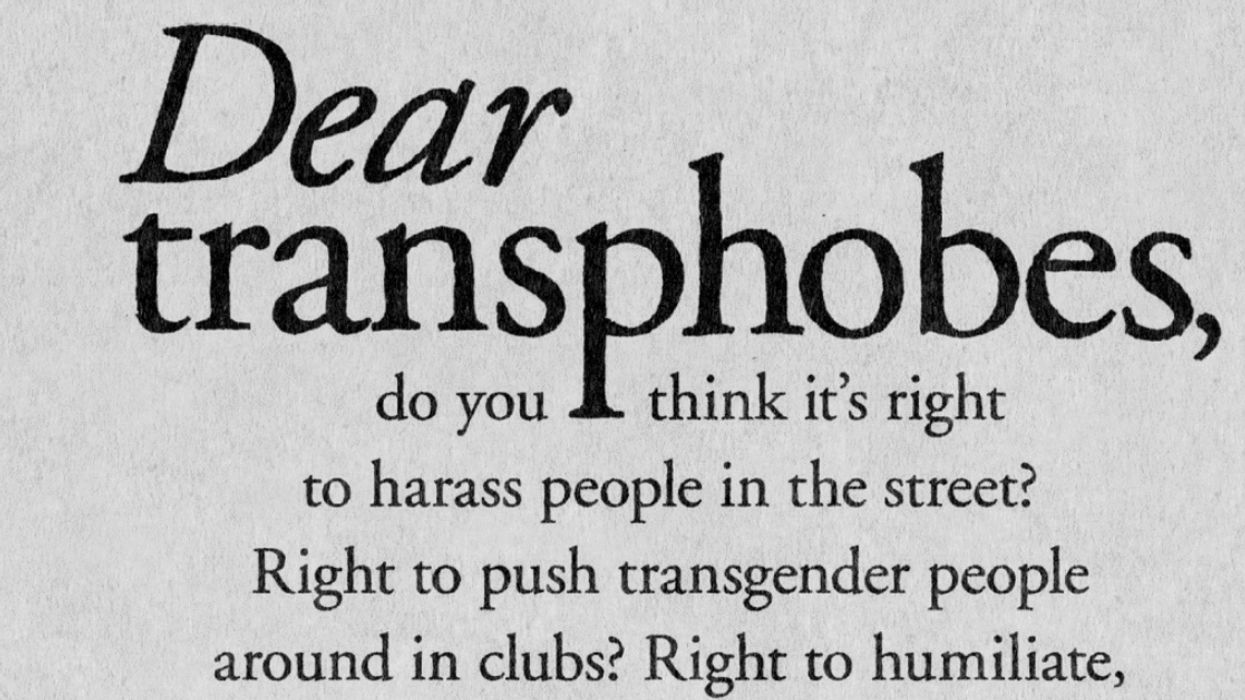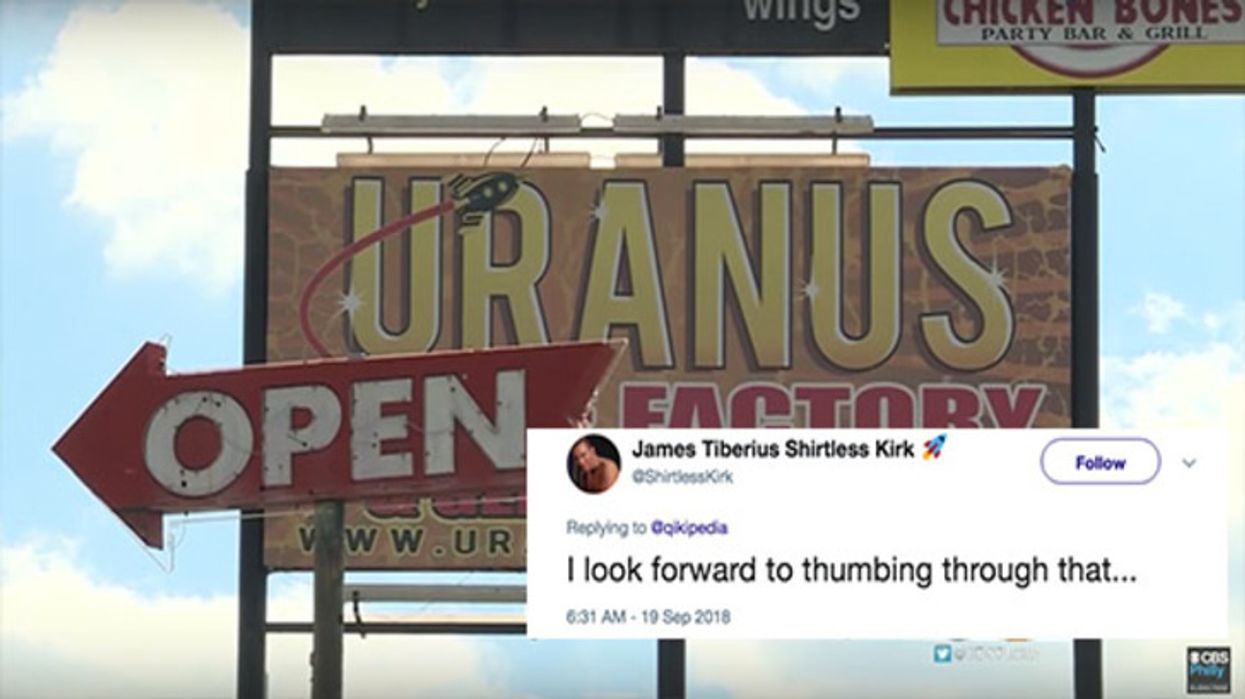August, 2003, LOS ANGELES - Winston Churchill said of history, "the farther back I look, the farther forward I can see." He believed that the lessons learned from history could prepare us to meet the challenges that we face in the future. Last month, I literally lived the value of Churchill's wisdom with a trip to Williamsburg, Virginia.
As if the 'transporter' from Star Trek had 'beamed' me back in time, I was living in the year 1774, just before the War for Independence from the onerous rule of the English King, George III. As a historic preservationist, I'd always wanted to visit Williamsburg, the colonial capital of Virginia, famous for its historic buildings that had been preserved, restored or recreated to pre-revolutionary times. I'd read that there would be guides authentically dressed to the period. However, I didn't realize how complete that experience back in time would be.
 The buildings were magnificently restored. What was truly impressive was the recreation of the context of the times. At the very center of Williamsburg was the Governor's Palace - as it was called. It was a substantial mansion but certainly not a palace in the grand European sense. But to the colonists, this imposing residence was the very symbol of opulence and the King's might. The houses of even the wealthy colonials seemed modest in contrast. Anchoring both ends of the main street, Duke of Gloucester, were the two significant structures of the capital, the Wren Building of the College of William and Mary, the seat of learning, at one end and the Capitol with the House of Burgesses, the seat of governance, at the other end. In the House of Burgesses, we sat in the seats that the Virginia representatives sat as we listened to the authentically clad historic interpreter recount all that transpired in this great hall. She pointed to a youngster and said that he may be sitting in the very seat from which Patrick Henry thundered against the King's taxes. He giggled self-consciously. She pointed to another teen-ager and said that she could be seated where Thomas Jefferson sat. She touched the wood of her seat with renewed awe. The docent personalized the past. She made history vibrantly real to a group of twenty-first century tourists. As the crowd moved on, I lingered in the great hall admiring the architecture. The docent approached me smiling. This faithful representative of history clad in colonial garb then, unexpectedly, broke the time barrier. Very discreetly, she whispered, "I have been a life-long Star Trek fans and was delighted to see you in the group. Would it be possible to get your autograph?" It was charming. I, who had depicted the future in fiction, connected with this wonderful spokesperson for the past. Arleen Donikowsky is a woman who spans the centuries with equal devotion to the past and the future.
The buildings were magnificently restored. What was truly impressive was the recreation of the context of the times. At the very center of Williamsburg was the Governor's Palace - as it was called. It was a substantial mansion but certainly not a palace in the grand European sense. But to the colonists, this imposing residence was the very symbol of opulence and the King's might. The houses of even the wealthy colonials seemed modest in contrast. Anchoring both ends of the main street, Duke of Gloucester, were the two significant structures of the capital, the Wren Building of the College of William and Mary, the seat of learning, at one end and the Capitol with the House of Burgesses, the seat of governance, at the other end. In the House of Burgesses, we sat in the seats that the Virginia representatives sat as we listened to the authentically clad historic interpreter recount all that transpired in this great hall. She pointed to a youngster and said that he may be sitting in the very seat from which Patrick Henry thundered against the King's taxes. He giggled self-consciously. She pointed to another teen-ager and said that she could be seated where Thomas Jefferson sat. She touched the wood of her seat with renewed awe. The docent personalized the past. She made history vibrantly real to a group of twenty-first century tourists. As the crowd moved on, I lingered in the great hall admiring the architecture. The docent approached me smiling. This faithful representative of history clad in colonial garb then, unexpectedly, broke the time barrier. Very discreetly, she whispered, "I have been a life-long Star Trek fans and was delighted to see you in the group. Would it be possible to get your autograph?" It was charming. I, who had depicted the future in fiction, connected with this wonderful spokesperson for the past. Arleen Donikowsky is a woman who spans the centuries with equal devotion to the past and the future.
There were no cars in the historic district. If one didn't walk, there were horse drawn carriages for those who were willing to pay. Most people walked - as did most people then. When one talked to the people dressed in colonial garb, they talked as people of their time. The shocking news that they shared with us was the report of some up in Boston who had dressed up as Indians and dumped English tea into Boston Harbor as a protest against the King's unjust tax. The people of Williamsburg certainly shared the sense of outrage against the tax. However, dumping the tea into the harbor, they thought, was rather "extreme." At noon, there was a fife and drum parade down Duke of Gloucester Street and we got a good sense of the martial spirit of the colonists. There were people dressed as colonials who spoke with Scottish or Hungarian accents because they had recently arrived as immigrants to America - as indeed there were immigrants back then. When we toured the houses of the wealthy, there were black slaves that did the cooking and cleaning. But they told us of others who had been freed and worked as blacksmiths or craftsmen. We visited a carpenter's workshop where furniture for the town was made in the traditional way. In this city of many races, backgrounds and social station, there was warmth, civility, graciousness, and a sense of community. We had dinner in historic eating establishments like the 18th century chophouse, King's Arm Tavern or Christiana Campbell's Tavern, which was George Washington's favorite, where menus offered traditional fare of the time. Costumed musicians playing the lute or other quaint period instruments provided the entertainment as we dined.
 The three day visit was truly "beaming back" into history. The sights, sounds, tastes, and spirit of colonial Williamsburg surrounded us completely. We got a real sense of the colonial spirit of mutual caring when we were caught in a sudden summer storm one evening just as we were leaving the historic district. Sopping wet, we were dashing back to our hotel when suddenly a lone s.u.v. came driving down the road. The driver opened the car window and shouted, "Here, use these," threw out umbrellas and drove off - no charge, no request for their return, just a simple gesture of kindness. We accepted the umbrellas with drenched gratitude. The colonial spirit of mutual help carried over into the 21st century.
The three day visit was truly "beaming back" into history. The sights, sounds, tastes, and spirit of colonial Williamsburg surrounded us completely. We got a real sense of the colonial spirit of mutual caring when we were caught in a sudden summer storm one evening just as we were leaving the historic district. Sopping wet, we were dashing back to our hotel when suddenly a lone s.u.v. came driving down the road. The driver opened the car window and shouted, "Here, use these," threw out umbrellas and drove off - no charge, no request for their return, just a simple gesture of kindness. We accepted the umbrellas with drenched gratitude. The colonial spirit of mutual help carried over into the 21st century.
From my visit to Williamsburg, I got a renewed understanding of the daily struggles and challenges faced by the Virginia colonists. Whatever their station, everyone had a role to fulfill and a responsibility to the community. There was a spirit of interdependence and mutual assistance and, at the same time, a pressing hunger for justice. The leaders then were extraordinary men of principal and vision. American democracy was born out of this mix. The ringing words, "We hold these truths to be self evident, that all men are created equal" were articulated out of the fusion of the spirit and events of these times. Yes, they lived with slavery. Yes, only educated landowners could vote. Yes, the women had no role in leadership. Yes, there were inconsistencies with the realities of the times. Yet, out of those societal discrepancies rose the vision of a nation of shining ideals, the framework for America. Our democracy is a continuing work in progress - and through the years, we have been making progress.
So, as a Californian, I am troubled by the mockery that is being made of our democratic electoral procedure by the irresponsibility of the recall of a recently re-elected governor. The recall is an important citizens' tool in a democracy to be used, as the constitution states, in cases of "malfeasance in office." It is not a tool to be used by bad losers of a legitimate election. I did not vote for the governor. I do not like him despite the fact that he and I are of the same political party. However, in a democracy, we accept the will of the majority and prepare for the next election to get rid of a bad politician. Just because you lost an election, that does not mean the losing minority has the right to recall him eight months later. I do not like President George Bush. I didn't vote for him. I feel he has been a disaster for the nation and the economy. He didn't even win the popular vote. However, the Supreme Court in a lawful procedure appointed him. Therefore, I have accepted that fact as part of the process and have waited to work for his replacement with the next election.
It is rather ironic that I am advocating the replacement of President Bush because last April I played a member of his cabinet, Secretary of Transportation Norman Mineta, in a television film which will be aired on Showtime cable channel on Sunday evening, September 7. It is titled, "DC 9/11: Time of Crisis," and is about the Bush administration during the days immediately following the horrors of September 11, 2001. My friend, Timothy Bottoms, plays President Bush. It is a tense drama of the response of the Bush administration to the trauma of horrific events. I hope you will all be able to catch it.
Scotland Tackles Transphobia and Homophobia In Brilliant New Billboard Ads ❤️
The Scottish government has had enough of hate crimes and is moving forward with a gutsy campaign.
According to Pink News, Scotland is launching a new initiative to combat intolerance with messages respectively addressing "bigots," "disablists," "homophobes," "racists," and "transphobes" in a series of ads circulating across the country.
Each message is signed on behalf of Scotland.
The campaign is part of the Scottish government's One Scotland project in an effort to reduce hate crime.
"The provocative ads were produced by the Scottish Government and Police Scotland as part of the One Scotland campa… https://t.co/KjinQL9xXT— Lizanne Foster (@Lizanne Foster) 1537935300.0
One letter reads:
"Dear transphobes, do you think it's right to harass people in the street? Right to push transgender people around in clubs? Right to humiliate, intimidate and threaten them online? Well we don't."
"That's why if we see you doing harm, we're reporting you. We believe people should be allowed to be themselves. Except if they're spreading hate."
"Yours, Scotland."
In another letter, the country says it has a "phobia" of homophobic behavior.
"If you torment people because of who they love, shout word that we are not going to write, or use violence because you don't like who someone is holding hands with, you should be worried."
"If we see or hear your abuse, we're calling the police. That's because love lives in this country, not hate."
"Yours, Scotland."
One Scotland's website describes the organization as one that aims to continue building an inclusive society while recognizing the significant strides made so far towards equality.
"One Scotland embodies the inclusive society we want in Scotland, where equality and human rights are respected and every individual and minority group feels valued."
There is a new ad campaign against hate crimes in Scotland. “We are a caring nation, not a hating one”.… https://t.co/rfsiFjIq6V— Jen Yang Mezei (@Jen Yang Mezei) 1537975493.0
The website defines hate crimes as abuse that "can be verbal or physical and has hugely damaging effects on the victims, their families and communities, and we all must play our part to challenge it."
"Police Scotland takes hate crime very seriously. In the last year there were over 5,300 charges of hate crime reported to the Procurator Fiscal in Scotland1."
"However, there are many more incidents that go unreported. We all have a responsibility to report hate crime if we witness it – it's the only way we can challenge it, and put an end to it for good."
The fact that the Scottish government and police are behind this ad campaign is incredible. It's good to see at lea… https://t.co/zMrqDVrhed— TransgenderDate (@TransgenderDate) 1537900917.0
Justice minister Humza Yousaf is familiar with being a victim of a bigotry and is encouraging people to call out and report any incidents involving harassment.
"As somebody who has faced Islamaphobic and racial abuse over the years, I know how upsetting being a victim of hate can be. Hate crime and prejudice are completely unacceptable and we are absolutely committed to tackling it."
"We all have a role to play in stamping out prejudice and I would ask anyone who witnesses a hate crime to play their part and report it. Justice agencies such the police and Crown Office will deal sensitively with reports made and people should have confidence in how they will be treated. Last year there were over 5,300 charges of hate crime reported to the Procurator Fiscal in Scotland but there are still many incidents that are going unreported."
New Ad Campaign launching on billboards and ad spaces all over #Scotland tackles #hatecime. The Police Scotland a… https://t.co/VJFH0jprjP— Pinksixty (@Pinksixty) 1537896702.0
Henrietta Mochrie identifies as transgender and has been the victim of repeated harassment and abuse. She emphasized the importance of speaking out against the hatred.
"I'll often get street harassment, sometimes this has escalated to the point where I've been followed by people shouting abuse at me, just because of who I am."
"It makes me feel really down and scared to leave the house. It's important that if you witness hate crime that you report it to take a stand against hate."
One Scotland's ad campaign officially launched on Wednesday.
Hopefully, it won't take too long before other nations follow suit in this bold, yet necessary fight for equality.
H/T - OneScotland, PinkNews, Twitter
Feminists Slam Man Telling Them They Can't Have Both Chivalry And Equality
A man on Twitter informed feminists they had to choose between chivalry and equality.
He was promptly raked over the coals for even assuming an antiquated concept would be considered as a viable option.
Twitter user @Rich_Cooper stated:
"Dear feminists. You either get equality or chivalry. You can't have both."
Dear feminists. You either get equality or chivalry. You can't have both.— Richard Cooper (@Richard Cooper) 1536083523.0
One user responded:
"I'll take equality. I don't need special treatment."
@Rich_Cooper #BenevolentSexism is still #sexism. I'll take equality. I don't need special treatment.— ☮️ Minkajane ☮️ (@☮️ Minkajane ☮️) 1537276790.0
Cooper's rhetorical question did not go over so well. Both women and men expressed their disdain for his message.
One male user observed that chivalry was irrelevant and treating everyone with kindness and respect was compulsory.
"What people care about is caring, empathic [sic], considerate, thoughtful people, NOT whether THEIR door is held for them or THEIR meal is paid for them."
"Are there gender stereotypes in het[erosexual] dating? Sure. But that's separate from being a warm, giving, caring, grounded person."
@Rich_Cooper What people care about is caring, empathic, considerate, thoughtful people, NOT whether THEIR door is… https://t.co/wlGHWRzKLi— Mark W. Wilson, MD (@Mark W. Wilson, MD) 1537276816.0
Some women got right down to the point.
@Rich_Cooper Translation: I will only be nice to you if you agree to be subservient to me— Elizabeth Noll (@Elizabeth Noll) 1537292709.0
@Rich_Cooper Gotta love when a man tells women what they can and can't have. Thanks for the heads up buddy 😉 https://t.co/gDMJscuTac— Hannah ✊ (@Hannah ✊) 1537285112.0
@Rich_Cooper Translation: I couldn’t possibly be expected to treat women as equals, show them respect, and still feel like a man.— Dom (@Dom) 1537293169.0
@Rich_Cooper We are sooooo bored with "chivalry" which stems from the courtly love period in the middle ages when w… https://t.co/wRho1a9DTz— Jeanthejust (@Jeanthejust) 1537280103.0
@Rich_Cooper Dear man. As a feminist, I open doors for men all the time. I also offer my seat to men in need on t… https://t.co/uxdwfh1kEM— My ovaries dream of puppers (@My ovaries dream of puppers) 1537502301.0
The notion of chivalry and equality are mutually exclusive and not a lot of people thought it was a major priority for feminists.
Common courtesy is not chivalry.
@Rich_Cooper Nah. That's some real childlike, oversimplified thinking. There are obviously more than these two op… https://t.co/lUqnEJhIAp— TheQuietRanger (@TheQuietRanger) 1537342901.0
@Rich_Cooper Wow, I had no idea that feminists were campaigning for chivalry, thanks for the Valuable Insight lol… https://t.co/iK62FTM9WY— Tracy Campbell the DM (Dungeon Mom) (@Tracy Campbell the DM (Dungeon Mom)) 1537294172.0
@Rich_Cooper I hold the door open for a guy walking into Starbucks behind me. Tomorrow, he might do the same for me… https://t.co/xWQEu6QHrM— Emma Scott (@Emma Scott) 1537294526.0
This user pointed out the fact that chivalry stems from a history of men outdoing other men. The concept had very little to do with women.
"Chivalry is a medieval concept of men dressing to impress other men. It has little to do with equality."
"Some men were on top, other men were beneath them. Historically, women were rarely invited into the process."
@Rich_Cooper @kent_imig Chivalry is a medieval concept of men dressing to impress other men. It has little to do wi… https://t.co/m8YPUkaUzm— Mark Findlay (@Mark Findlay) 1537257080.0
Neil Bradley described the outdated concept of chivalry as one that implies men being superior to women in a September 8, 2017, article for Medium publications.
"Examples: opening the door for a woman, paying for a woman's meal, gesturing for a woman to go first. The justification is either that women are not physically as strong (to open the door), able to provide (pay for their own meal), or are more deserving of compassion than men (allowing women to go first)."
Bradley also added that he wants to treat others the way he wants to be treated and asked if that approach should be motivated by chivalry or equality.
"If the genders are to be considered equal and treated equally, how a man treats a woman will essentially be the same as how a man treats a man."
"The obligation to open the door, pay for the meal, and let women go first vanishes. Men do not do this to other men, therefore why do it for women?"
His final take was that the two concepts can't co-exist. Either one is chivalrous or treats everyone as equals.
At the end of the day, people were happy to show chivalry the door.
@seanrmccauley @DoverCook @ShappiKhorsandi @Rich_Cooper @MarkFindlay26 @kent_imig Nobody needs chivalry. Equality a… https://t.co/isq5Fo84iU— John Dougherty (@John Dougherty) 1537357843.0
H/T - GettyImages, Twitter, Indy100, Medium
Katy Perry, P!nk, Paul McCartney And More Sign Letter Threatening To Boycott SiriusXM Radio
Hundreds of artists have signed a letter threatening a boycott if SiriusXM's parent company, Liberty Media, doesn't back down from opposing the Music Modernization Act.
The act, which was expected to pass through Congress, streamlines royalty payments in the new age of digital technology, but it seems SiriusXM is objecting to a small section that would have the satellite radio company paying royalties on recordings dating before 1972.
That's a whole lot of songs and a whole lot of money the company is hoping to skip out on paying, but not if stars like Paul McCartney, P!nk, Stevie Nicks, Sia, Carly Simon, Gloria Estefan, Mick Fleetwood, Don Henley, Max Martin, and Katy Perry can help it.
The letter read, in part:
I'm writing you with grave concern about SiriusXM's opposition to the Music Modernization Act (Classics Act included).
We are all aware of your company's objections and trepidation but let me say that this is an opportunity for SiriusXM to take a leadership position. As you are aware, 415 Representatives and 76 Senators have already cosponsored the MMA along with industry consensus. It's SiriusXM vs all of us. We can either fight to the bitter end or celebrate this victory together. Rather than watch bad press and ill will pile up against SiriusXM, why not come out supporting the most consequential music legislation in 109 years? We do not want to fight and boycott your company but we will as we have other opponents. Stand with us! Be brave and take credit for being the heroes who helped the MMA become historic law! Momentum is building against SiriusXM and you still have an opportunity to come out on the right side of history. We look forward to your endorsement but the fire is burning and only you can put this out.
SiriusXM resoponded with a letter of their own:
Over the past several weeks, we have been the subject of some stinging attacks from the music community and artists regarding our views on the Music Modernization Act. Contrary to new reports and letters, this is really not about a SiriusXM victory, but implementing some simple, reasonable and straightforward amendments to MMA. There is nothing in our "asks" that gut the MMA or kills the Act. So let's talk about the substance of the amendments we propose, because we truly do not understand the objections or why these concepts have incited such a holy war.ontrary to the accusations, SiriusXM has proposed three simple amendments to the MMA.
First, SiriusXM has asked that the CLASSICS Act recognize that it has already licensed all of the pre-1972 works it uses. This amendment would ensure that artists – the people who are supposed to be at the heart of the MMA – receive 50% of the monies under those existing licenses. Is that unfair? Just today, Neil Diamond wrote in the LA Times that: "I receive a small amount of songwriting royalties, but no royalties as the recording artist." How can that happen? To date, SiriusXM has paid nearly $250 million dollars in pre-'72 royalties to the record labels. We want to make sure that a fair share of the monies we have paid, and will pay, under these licenses gets to performers. Without this provision, artists may never see any of the money SiriusXM paid, and will pay, for the use of pre-1972 works. Artists not getting paid hurts our business!
Second, Sirius XM thinks that the fair standard to use in rate setting proceedings is the standard that Congress chose in 1995 and confirmed again in 1998 – which is called the 801(b) standard. However, we are willing to move the "willing buyer/willing seller" standard contained in the MMA. In exchange, we have asked for the same concession that the MMA grants to other digital music services, but we were left out of — simply that the rates that were set last year for five years now apply for ten years. We thought this was a fair compromise when we read the "new" MMA that was released this weekend by the Senate, and are willing to live by that compromise.
Third, SiriusXM is asking the simple question: "Why are we changing the rate court evidence standard for musical compositions in this legislation so that it gives another advantage to broadcasters over satellite radio and streaming services?" There is no policy rationale for this change to tilt the playing field further in their favor, and frankly no one has been able to explain it to us. It is only fair that we debate why the change to Section 114(i) is in the MMA.
Did you all catch that? It sounds like lawyer speak for "we don't really want to say where we stand."
It seems all the letters were for naught. The Music Modernization Act passed in the U.S. Senate.
The #MusicModernizationAct has been passed by the U.S. Senate! 🎶 Along with our members across the country, we're e… https://t.co/52yNhtV4zk— Recording Academy / GRAMMYs (@Recording Academy / GRAMMYs) 1537318533.0
@kayhanley @SIRIUSXM Hi @kayhanley, I absolutely support the #MusicModernizationAct. I signed on as a cosponsor ear… https://t.co/j4JHXpLBxI— Elizabeth Warren (@Elizabeth Warren) 1537225190.0
People said this was impossible. Some even worked hard to make it impossible, even telling outright lies about wh… https://t.co/iMTlwJLWVw— Future of Music Coalition (@Future of Music Coalition) 1537309844.0
We're thrilled to share that the Senate has unanimously voted to pass the #MusicModernizationAct, an historic miles… https://t.co/Uuy2Yp8zCw— ASCAP (@ASCAP) 1537311517.0
It was time to celebrate and dance in the streets.
@ASCAP @Beth_ASCAP Grateful. That says it all. Grateful past language for the sweet souls who worked so hard to mak… https://t.co/JSeUNCwFSd— Paul Williams (@Paul Williams) 1537319434.0
@ASCAP @Beth_ASCAP @IMPaulWilliams YES!!!! Songwriters are dancing everywhere!— James Grey (@James Grey) 1537315642.0
@ASCAP @Beth_ASCAP @IMPaulWilliams Thank you for helping us all organize to get this done #MusicModernizationAct— Tangent Recording (@Tangent Recording) 1537311639.0
@ASCAP @Beth_ASCAP @IMPaulWilliams Greatness Is What Greatness Does....And This Is Great.— Eddie C Person Jr (@Eddie C Person Jr) 1537365270.0
@ASCAP @Beth_ASCAP @IMPaulWilliams #Love it!— CKGTHEDON (@CKGTHEDON) 1537315443.0
@ASCAP @Beth_ASCAP @IMPaulWilliams Fantastic News! Thank You U.S. Senate ~> Pass it House Of Representatives ~> Sig… https://t.co/tukiZ8Ryug— MarkAlexanderCarroll (@MarkAlexanderCarroll) 1537321589.0
@ASCAP @Beth_ASCAP @IMPaulWilliams Simply amazing hard work pays off.— PedroBarr (@PedroBarr) 1537320953.0
@ASCAP @Beth_ASCAP @IMPaulWilliams Thank all of you for your tireless efforts and work.Protecting what is important… https://t.co/goFps7yu2V— Roney Hooks (@Roney Hooks) 1537317136.0
@ASCAP @Beth_ASCAP @IMPaulWilliams I am so thankful for this wonderful change. We songwriters deserve it!— J.R. FOWLER (@J.R. FOWLER) 1537322119.0
As the saying goes, honest pay for honest work.
Some Residents Of Uranus, Missouri Are Not Happy About The Name Of Their New Local Newspaper 😆
There's nothing like a good pun about human anatomy. Really gets the juices flowing!
The Uranus Examiner is coming to this Missouri town. Yes, really. https://t.co/RKy7kDcCFT— The Kansas City Star (@The Kansas City Star) 1536865442.0
Owners of the new Uranus Examiner must have been snickering as they announced the paper's name. Apparently, it's caused quite the controversy in the small town of Uranus, Missouri, over the last few days.
Residents are divided over whether the pun is an embarrassment or perfectly snarky:
“It’s a serious newspaper!” declares the managing editor of the Uranus Examiner. @nypost https://t.co/uig5eYxT2t— Bryan A. Garner (@Bryan A. Garner) 1537038088.0
Folks on the internet responded with maturity and composure after learning about the Uranus Examiner.
Oh, wait. No they didn't.
@qikipedia Uranus Examiner... it's got a nice ring to it 😀.— Roy Elliott (@Roy Elliott) 1537364058.0
I pitched “The Regina Monologues” as the name for my column at the Regina Leader-Post and was unceremoniously turn… https://t.co/aejjXcooWK— Jana G. Pruden (@Jana G. Pruden) 1536938407.0
If we ever colonize Uranus, the hardest part will be picked a newspaper name. "The Uranus Examiner"? Gonna be rough.— Scott Johnson (@Scott Johnson) 1537192690.0
@qikipedia How is it I've lived in Missouri my whole life and never gone through Uranus— Joshua Ryman, Sigma Grindcore Consultant (@Joshua Ryman, Sigma Grindcore Consultant) 1537366074.0
The newspaper name is a source of controversy — “Butt I like it,” the Uranus mayor said. https://t.co/xZWn4qthd1— Kaitlyn Alanis (@Kaitlyn Alanis) 1536865208.0
If you think about it... there might actually be a method to the madness here. The brand new paper's name has received widespread media coverage over this past week. Simply put... everyone's talking about Uranus.
In terms of publicizing their new venture, the owners of the Uranus Examiner have actually done a pretty sweet job!
In the video above, a woman suggests the paper should have been called "The Pulaski County Examiner."
If you ask me, that's TOTALLY BORING, and wouldn't have generated as much interest and publicity for the paper. So while the name might be cringeworthy to some, you can bet Uranus that it'll stick around. Who knows, Uranus might even grow as a result!
H/T: Indy100, The Kansas City Star












 (
( (
(




